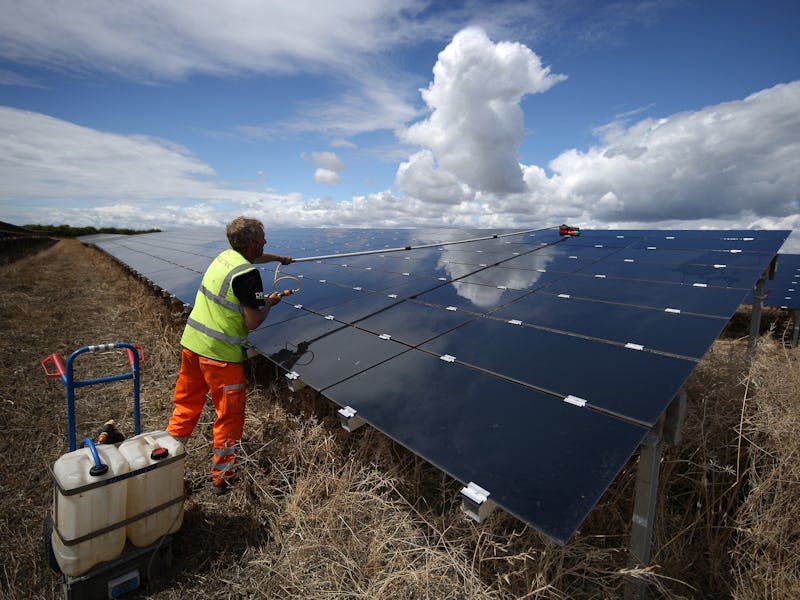The White House Silences the DOE Solar Energy Team on Twitter
SunShot has been shut out.

A social media blackout has struck at another U.S. government department. On Thursday, it emerged that an internal email to the Department of Energy’s SunShot solar program is telling employees to not post anything to Twitter or Facebook about work “until further notice.” The note, sent to the 50 staff members working on the project, relayed an order given by Steven Chalk, deputy assistant secretary for renewable energy.
The email, published by ThinkProgress, reads:
I want to share that we are PROHIBITED from any social media post (from personal or business handles) regarding your work, attendance at any meeting, etc until further notice, per Steve Chalk, acting EE-1.
SunShot is an initiative aimed at driving down the cost of solar energy and offering grants for research and development. The initiative was launched in 2011 with the goal to get solar cost-competitive with traditional energy by the year 2020. For example, the team aims for $0.09 per kilowatt hour for residential photovoltaics: at the start of the initiative, it was at $0.42, and by 2016 it reached $0.18.
A spokesperson told the publication that the order was not department-wide, but that the Office of Energy Efficiency and Renewable Energy (EERE), which is responsible for the SunShot initiative, may have been acting on its own.
It wouldn’t be the first agency to come under a social media gagging order. The EPA, National Park Service, and Forest Service have been given orders by the new administration to stop tweeting about climate science. This has led to a number of unofficial accounts claiming to be employees from these agencies, tweeting about climate science to circumvent the ban.
It’s possible that SunShot is trying to avoid getting on the wrong side of the administration, as a pre-emptive measure. However, one employee told the publication that the new administration has yet to approve any new public communication since the inauguration. President Trump has expressed an interest in cutting the EERE entirely, a $2.9 billion budget saving that would also see SunShot scrapped. If it came around, a major driver of solar energy price reductions would disappear.